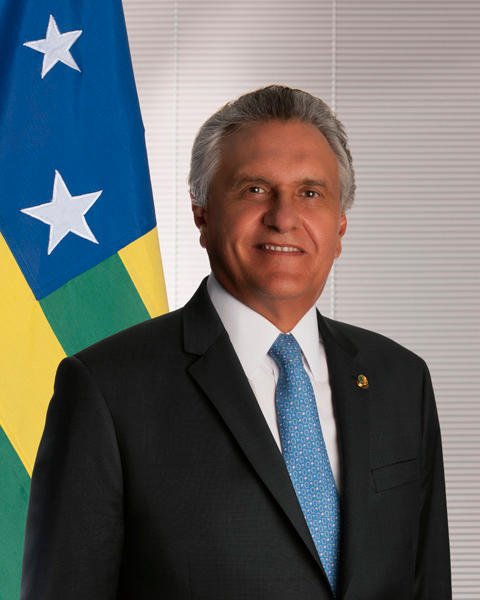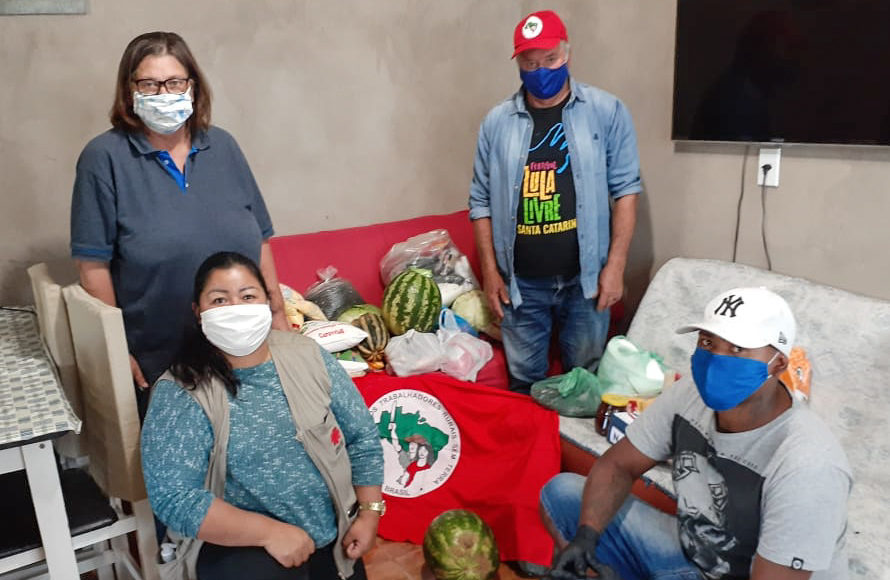Brazil’s president Bolsonaro has ridiculed the coronavirus crisis as being a mere flu, outraging health professionals and going against most members of his own government, including the (now ex-) health minister Mandetta, the notorious Lula-jailing Justice Minister Sergio Moro, and the military.

State governors have taken matters into their own hands, condemning Bolsonaro’s irresponsibility and ordering lockdowns in their own states. These governors are not just from the centre-right and leftwards, but include previous supporters of the president, including Ronaldo Caiado of Goiás, a farming state in central Brazil. Caiado is president of the influential Democratic Association of Ruralists (UDR) which promotes big landowner interests and opposes agrarian reform via its numerous members in the Brazilian Congress. Bolsonaro probably sees Mendetta and critical state governors such as Caiado as rivals in the 2022 presidential elections and seems more interested in fending them off than taking concrete steps to defend the people of Brazil from the devastating impact of the coronavirus.
The UDR is a vociferous opponent of the MST, the Landless Workers Movement in Brazil, which has been active from the start in defending millions of small agricultural producers from the impact of the coronavirus. One of its YouTube videos features an MST doctor who provides specific advice on self-protection for small rural growers, many on expropriated or occupied small-holdings, who have no choice but to go into local towns to sell their produce at street markets.
The advice emphasizes not only social distancing and avoiding the human impulse to shake hands with customers, but also specifically not to rely on clear water to wash hands, to take alco-gel with you, and to use it a lot to keep hands clean.
The MST website also details these measures in a short article on 15 ways to protect yourself when selling food produce. Some of the advice is well known, as seen in shops in the UK, but other suggestions include prepackaging portions in clingfilm, using a small open container to receive cash and give change, and to wash clothes separately and outside when returning home. There is also reassuring advice for the producer that your customers will understand and not consider it disrespectful or be offended when you do not shake hands nor give [Brazilian] hugs or kisses on the cheek.
Of course the MST, as a political organisation, knows that such advice is not enough. Another article on its website gives 10 reasons to defend the Sistema Único de Saúde (SUS – Brazil’s NHS), with which many in the UK will identify as we fight for the NHS here. The SUS is the world’s largest public health system serving over 200 million people; most Brazilians would have no health care access without the SUS which carries out over 1.5 billion procedures a year; the SUS includes public health prevention, and services for livestock; provides health care to rural areas, including remote communities reached only by river; nearly 1000 medicines are free, as are vaccinations.
The article’s final three points emphasise:
- that the SUS (expanded during the PT governments of Lula and Dilma Rouseff) has made Brazil better equipped and ready to tackle the coronavirus;
- that health care is a constitutional right since 1988 (3 years after the end of the military dictatorship);
- that there is an urgent need to repeal the 2017 Constitutional Amendment No.95 limiting public spending and investment in health and education for 20 years.
The attitude and actions of the MST promoting virus hygiene and defending the SUS contrast bleakly with the criminal irresponsibility of Bolsonaro. This contrast also has been noted by others including, interestingly, by The Economist magazine. Its April 11th edition features two articles, one on the political isolation of Bolsonaro, and another noting how Latin America’s precarious and under-funded public health services are crucial in fighting the coronavirus. The MST plays its part in both of these wider struggles.
Main image: MST volunteers distribute 7.3 tons of food and 7,000 litres of milk in the town Santa Catarina, as part of their ‘Periferia Viva’ campaign. Image: Juliana Franço/MST

